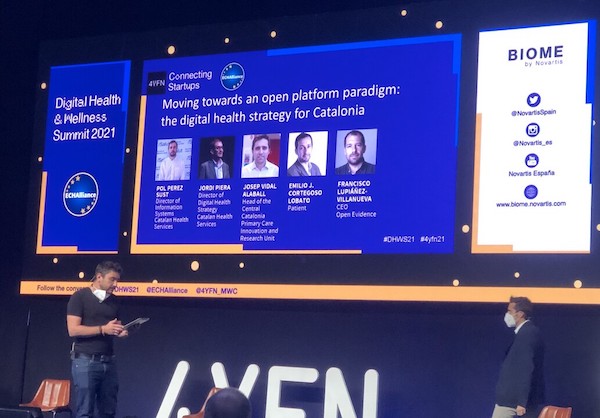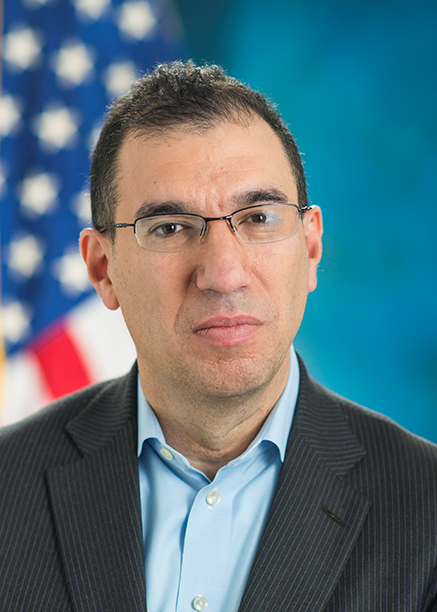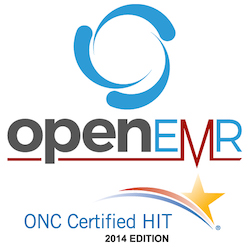Request for Information (RFI)
See the following -
Catalonia releases RFI on technology elements to build an open platform using openEHR ~ ECHAlliance
 The region of Catalonia has launched today a Request for Information (RFI) with the purpose to obtain technical information on the possibilities of supplying the elements of a technological platform for the development of the Electronic Health Record of Catalonia. Given the technical complexity of the technological platform for the development of the Electronic Health Record and the need to finish defining its design and the components of the platform to be tendered, as well as to inform the economic operators active in the market of the need that has arisen...
The region of Catalonia has launched today a Request for Information (RFI) with the purpose to obtain technical information on the possibilities of supplying the elements of a technological platform for the development of the Electronic Health Record of Catalonia. Given the technical complexity of the technological platform for the development of the Electronic Health Record and the need to finish defining its design and the components of the platform to be tendered, as well as to inform the economic operators active in the market of the need that has arisen...
- Login to post comments
CDC Issues RFI for Real-world Testing of Health Information Technology
 In October the Centers for Disease Control and Prevention (CDC) issued a Request for Information (RFI) for a Natural Test Collaborative (NTC). Through a series of questions, the RFI seeks opinions and information about "The development of a national testbed (notionally called the National Test Collaborative (NTC)) for real-world testing of health information technology (IT)" and "Approaches for creating a sustainable infrastructure" to achieve it. The scope of the questions is somewhat confusing and quite broad, starting with Clinical Decision Support (CDS) and electronic Clinical Quality Measures (eCQMs) but quickly expanding to Electronic Health Records (EHR) and interoperability (not precisely defined).
In October the Centers for Disease Control and Prevention (CDC) issued a Request for Information (RFI) for a Natural Test Collaborative (NTC). Through a series of questions, the RFI seeks opinions and information about "The development of a national testbed (notionally called the National Test Collaborative (NTC)) for real-world testing of health information technology (IT)" and "Approaches for creating a sustainable infrastructure" to achieve it. The scope of the questions is somewhat confusing and quite broad, starting with Clinical Decision Support (CDS) and electronic Clinical Quality Measures (eCQMs) but quickly expanding to Electronic Health Records (EHR) and interoperability (not precisely defined).
- Login to post comments
CMS Supports Open Source/Modular Medicaid Information Technology
 Investing in the future of Medicaid is one of the single biggest opportunities in the health care sector...Overall, CMS’ annual investment in state Medicaid Information Technology (IT) is more than $5 billion, enabling states to modernize their Medicaid IT systems to best meet their program, providers’ and beneficiaries’ needs. CMS and states are prepared to invest in innovative solutions. For this investment, we expect significant advances. Our new regulations require that states evolve their legacy Medicaid IT systems to leverage reusable solutions, and to practice industry-proven IT methods such as use of modularity, reuse, shared services (including Software-as-a-Service) by fundamentally shifting the financial incentives away from custom development. This opens opportunity to smaller vendors to develop focused solutions for use across multiple states or to introduce solutions from comparable sectors such as commercial insurance or large provider systems.
Investing in the future of Medicaid is one of the single biggest opportunities in the health care sector...Overall, CMS’ annual investment in state Medicaid Information Technology (IT) is more than $5 billion, enabling states to modernize their Medicaid IT systems to best meet their program, providers’ and beneficiaries’ needs. CMS and states are prepared to invest in innovative solutions. For this investment, we expect significant advances. Our new regulations require that states evolve their legacy Medicaid IT systems to leverage reusable solutions, and to practice industry-proven IT methods such as use of modularity, reuse, shared services (including Software-as-a-Service) by fundamentally shifting the financial incentives away from custom development. This opens opportunity to smaller vendors to develop focused solutions for use across multiple states or to introduce solutions from comparable sectors such as commercial insurance or large provider systems.
- Login to post comments
CMS To Invest $5+ Billion a Year in Open Source and Cloud-based IT Infrastructure for Medicaid
 After more than 40 years of relying on monolithic mainframe platforms to administer its services, the Centers for Medicare & Medicaid Services (CMS) has embraced a new modular, open and agile approach to Medicaid health information technology for the Federal government and States. In many ways, this is the best of what open source advocates and technology innovators could have hoped for when it comes to open source policy from a government agency. According to Andrew Slavitt, Acting Administrator of CMS, the agency will spend more than $5 billion a year to fund this transformation.
After more than 40 years of relying on monolithic mainframe platforms to administer its services, the Centers for Medicare & Medicaid Services (CMS) has embraced a new modular, open and agile approach to Medicaid health information technology for the Federal government and States. In many ways, this is the best of what open source advocates and technology innovators could have hoped for when it comes to open source policy from a government agency. According to Andrew Slavitt, Acting Administrator of CMS, the agency will spend more than $5 billion a year to fund this transformation.
DOD moves forward with department-wide e-health records project
The Defense Department has taken another step in its quest to create a new, departmentwide electronic health record. Read More »
- Login to post comments
Does Healthcare Need a More Modern Way to Define and Measure EHR Interoperability?
Industry experts and the federal government are divided on the best way to assess the state of the nation’s health IT interoperability. The Office for the National Coordinator for Health IT, for instance, has proposed using CIO surveys to gauge the status of interoperability among and between healthcare organizations. To that end, ONC posted a Request for Information (RFI) on how to best assess interoperability that closed last month — just not before drawing some sharp comments from across the industry...
- Login to post comments
Does Healthcare Need a More Modern Way to Define and Measure EHR Interoperability?
 KLAS executive vice president Taylor Davis said that measuring interoperability can get messy because the EHR market is currently immature. Industry experts and the federal government are divided on the best way to assess the state of the nation’s health IT interoperability. The Office for the National Coordinator for Health IT, for instance, has proposed using CIO surveys to gauge the status of interoperability among and between healthcare organizations...
KLAS executive vice president Taylor Davis said that measuring interoperability can get messy because the EHR market is currently immature. Industry experts and the federal government are divided on the best way to assess the state of the nation’s health IT interoperability. The Office for the National Coordinator for Health IT, for instance, has proposed using CIO surveys to gauge the status of interoperability among and between healthcare organizations...
- Login to post comments
How are Clinical Decision Support Artifacts Tested Today?
 In October 2018 the Centers for Disease Control and Prevention (CDC) issued a Request for Information (RFI) for a Natural Test Collaborative (NTC). Through a series of questions, the RFI seeks opinions and information about "The development of a national testbed (notionally called the National Test Collaborative (NTC)) for real-world testing of health information technology (IT)" and "Approaches for creating a sustainable infrastructure" to achieve it. The scope of this RFI is daunting. It might be useful, rather than to try to tackle this whole topic broadly but superficially, to take just one Clinical Decision Support (CDS) domain and show as completely as possible how testing is currently done.
In October 2018 the Centers for Disease Control and Prevention (CDC) issued a Request for Information (RFI) for a Natural Test Collaborative (NTC). Through a series of questions, the RFI seeks opinions and information about "The development of a national testbed (notionally called the National Test Collaborative (NTC)) for real-world testing of health information technology (IT)" and "Approaches for creating a sustainable infrastructure" to achieve it. The scope of this RFI is daunting. It might be useful, rather than to try to tackle this whole topic broadly but superficially, to take just one Clinical Decision Support (CDS) domain and show as completely as possible how testing is currently done.
- Login to post comments
ONC EHR Reporting Program RFI: A Public Health Perspective
 On August 24, 2018, the Office of the National Coordinator for Health Information Technology (ONC) released a Request for Information (RFI) related to the EHR Reporting Program. This RFI is required by the 21st Century Cures Act and its primary purpose is to gather ideas and suggestions related to how ONC might provide better information about Certified EHR Technology (CEHRT). Apparently, the initial intention was to create a "star rating" like the type used in Consumer Reports to use to rate EHRs, but that seems to have been abandoned in favor of some kind of measurement system. But it is far from clear exactly how this would be done.
On August 24, 2018, the Office of the National Coordinator for Health Information Technology (ONC) released a Request for Information (RFI) related to the EHR Reporting Program. This RFI is required by the 21st Century Cures Act and its primary purpose is to gather ideas and suggestions related to how ONC might provide better information about Certified EHR Technology (CEHRT). Apparently, the initial intention was to create a "star rating" like the type used in Consumer Reports to use to rate EHRs, but that seems to have been abandoned in favor of some kind of measurement system. But it is far from clear exactly how this would be done.
- Login to post comments
OpenEMR Consortium Unveils Proposal for an Open Source U.S. Coast Guard EHR
 ...a consortium of OpenEMR vendors united as one to propose an open source solution for a modern, customizable, and cost effective EHR to the USCG. The OpenEMR Consortium submitted their proposal to the USCG on June 2nd, 2017 and it was released to the public on July 5th, 2017. The proposal is based on the EHR software package, OpenEMR. OpenEMR is an open source, fully functional EHR software package that is ONC Certified as a Complete EHR.
...a consortium of OpenEMR vendors united as one to propose an open source solution for a modern, customizable, and cost effective EHR to the USCG. The OpenEMR Consortium submitted their proposal to the USCG on June 2nd, 2017 and it was released to the public on July 5th, 2017. The proposal is based on the EHR software package, OpenEMR. OpenEMR is an open source, fully functional EHR software package that is ONC Certified as a Complete EHR.
- Login to post comments
OSEHRA Calls for Comments to VA Open Source Policy
 Just got an email from Kris Prendergast, community organizer for the Open Source Electronic Health Record Alliance (OSEHRA) calling on the community to provide input to the open source strategy for the US Department of Veterans Affairs (VA). The VA, which developed the VistA EHR, widely recognized as the world's best hospital-based EHR, is seeking comments to their next generation IT contract. They are specifically requesting comments and suggestions to their open source strategy. This strategy will be discussed in great detail at the OSEHRA conference next week. Read More »
Just got an email from Kris Prendergast, community organizer for the Open Source Electronic Health Record Alliance (OSEHRA) calling on the community to provide input to the open source strategy for the US Department of Veterans Affairs (VA). The VA, which developed the VistA EHR, widely recognized as the world's best hospital-based EHR, is seeking comments to their next generation IT contract. They are specifically requesting comments and suggestions to their open source strategy. This strategy will be discussed in great detail at the OSEHRA conference next week. Read More »
- The Future Is Open
- Login to post comments
OSEHRA Community Responds to the VA's RFI for eHMP Agile Development Contract Strategy
 In recent days, OSEHRA Community Members have enthusiastically collaborated to develop a response to VA’s Request for Information (RFI) for a contract strategy that is suitable for agile development of Enterprise Health Management Platform (eHMP). I would like to thank more than 50 members who contributed in developing the final document that OSEHRA submitted today on behalf of the community. Many members participated in community discussions, shared documents, and provided great ideas. We hope that our response accurately presents the depth and breath of expertise and commitment to excellence that has been shown by the OSEHRA Community.
In recent days, OSEHRA Community Members have enthusiastically collaborated to develop a response to VA’s Request for Information (RFI) for a contract strategy that is suitable for agile development of Enterprise Health Management Platform (eHMP). I would like to thank more than 50 members who contributed in developing the final document that OSEHRA submitted today on behalf of the community. Many members participated in community discussions, shared documents, and provided great ideas. We hope that our response accurately presents the depth and breath of expertise and commitment to excellence that has been shown by the OSEHRA Community.
- Login to post comments
OSEHRA Proposes Visionary Open Digital Health Platform for the VA
 The Veterans Health Administration (VHA) recently released a Request for Information (RFI) calling for advice on how to build an open, "interoperable digital health platform." The RFI received 40 responses. Only one of those was publicly released, the one from OSEHRA. That the open source EHR organization was the only one that has been open in their submissions, by itself, tells a story. There are some in the VA proposing replacing the open source VistA EHR with a "Commercial" lock-in product. Proprietary EHR vendors are circling the VA like sharks smelling blood in the water, and they don't want the public to know what they are up to...The OSEHRA response below. Note that several dozen OSEHRA member companies and associates participated in drafting this response.
The Veterans Health Administration (VHA) recently released a Request for Information (RFI) calling for advice on how to build an open, "interoperable digital health platform." The RFI received 40 responses. Only one of those was publicly released, the one from OSEHRA. That the open source EHR organization was the only one that has been open in their submissions, by itself, tells a story. There are some in the VA proposing replacing the open source VistA EHR with a "Commercial" lock-in product. Proprietary EHR vendors are circling the VA like sharks smelling blood in the water, and they don't want the public to know what they are up to...The OSEHRA response below. Note that several dozen OSEHRA member companies and associates participated in drafting this response.
- Login to post comments
Pitching Medicaid IT in Silicon Valley
 Earlier this year, I announced a new effort to connect new, innovative companies and their investors to the state Medicaid program IT space. Since this announcement, I have been encouraged by the initial interest from companies that may not have otherwise ever thought about participating in this important health insurance program that covers more than 72 million Americans. That’s why I’m in Silicon Valley today to participate in a forum on bringing technological advances to Medicaid. The forum is convening states, innovative tech companies, and federal Medicaid officials on how to collaborate to improve the delivery of Medicaid health coverage in states.
Earlier this year, I announced a new effort to connect new, innovative companies and their investors to the state Medicaid program IT space. Since this announcement, I have been encouraged by the initial interest from companies that may not have otherwise ever thought about participating in this important health insurance program that covers more than 72 million Americans. That’s why I’m in Silicon Valley today to participate in a forum on bringing technological advances to Medicaid. The forum is convening states, innovative tech companies, and federal Medicaid officials on how to collaborate to improve the delivery of Medicaid health coverage in states.
- Login to post comments
VA Again Seeks Alternative to Microsoft
The Veterans Affairs Department has kicked off its second effort in just more than a year to find an alternative to the Microsoft software key to its operations.
- Login to post comments